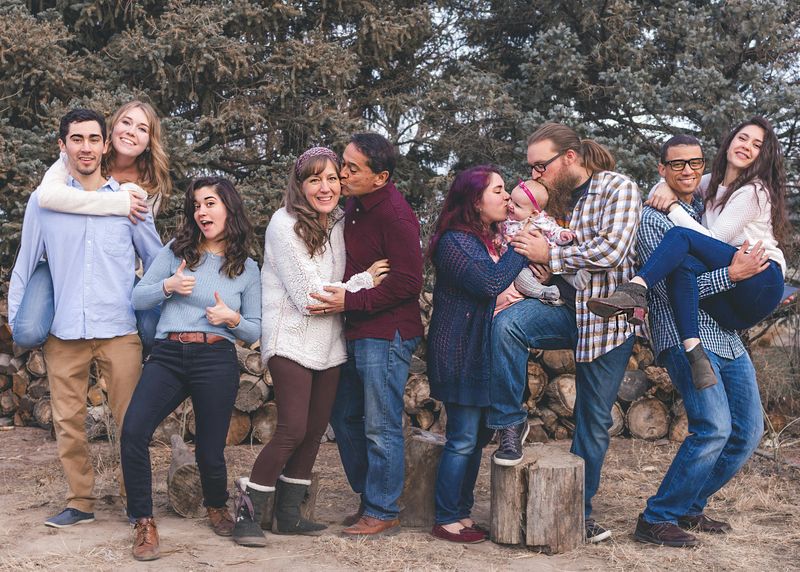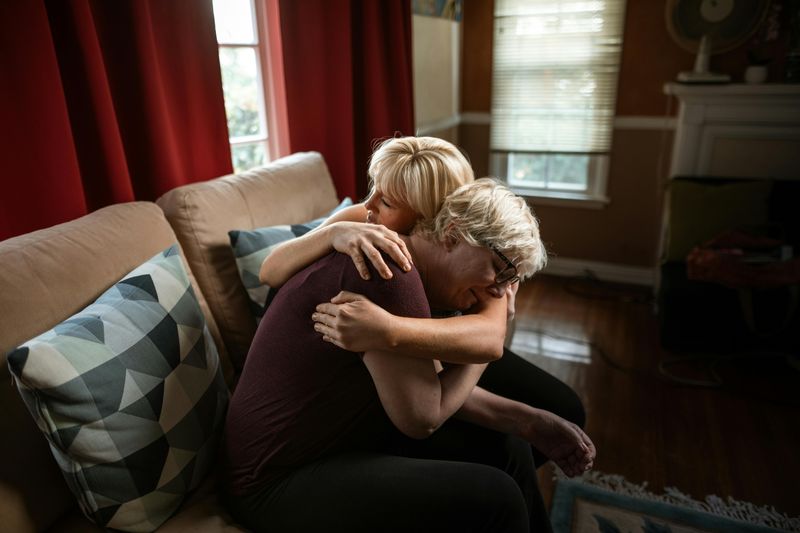Growing up in a family affected by narcissism often means living with unspoken rules, hidden roles, and emotional games that nobody outside—or even inside—the family dares to name.
These dynamics shape how you see yourself, relate to others, and understand love. Recognizing these patterns is the first step toward healing and reclaiming your sense of self.
1. Love That Comes With Conditions
Affection in narcissistic families isn’t freely given. Instead, warmth and approval appear only when you follow the rules, agree with the narcissist, or make them look good. Step out of line, and the love vanishes.
Children learn quickly that their value depends on obedience and performance. This creates a constant state of anxiety, where you’re always trying to earn something that should be unconditional. Over time, you forget what genuine acceptance feels like.
Breaking free means understanding that real love doesn’t require you to shrink yourself or perform for approval.
2. The Golden Child and Scapegoat Divide
Narcissistic parents often assign roles to their children that have nothing to do with who they really are. One child becomes the golden child—praised, favored, and held up as perfect. Another becomes the scapegoat, blamed for everything that goes wrong.
These roles aren’t based on behavior or character. They serve the parent’s ego and need for control. The golden child feels pressure to stay perfect, while the scapegoat absorbs all the family’s shame and anger.
Both roles are damaging. Neither child is seen for who they truly are, and sibling relationships suffer deeply.
3. When Children Become the Parent
Parentification flips the natural family structure upside down. Instead of the parent caring for the child, the child ends up managing the parent’s emotions, needs, and even daily responsibilities. You might have comforted your mom after her outbursts or kept secrets to protect your dad’s image.
This role reversal steals childhood. You grow up too fast, learning to read emotions like a survival skill. Your own needs get buried because there’s no space for them.
Healing requires grieving the childhood you didn’t get and learning it’s okay to have needs of your own.
4. The Perfect Family Illusion
From the outside, everything looks flawless. Holiday cards are picture-perfect, social media glows with happy moments, and guests are greeted with smiles and charm. But behind closed doors, the reality is completely different—cold silence, explosive anger, or crushing control.
Maintaining this facade becomes a family mission. Everyone plays their part to protect the image, even when it means hiding pain and pretending everything is fine. Authenticity gets sacrificed for appearances.
Living this double life is exhausting. It teaches you that what you feel doesn’t matter as much as what others see.
5. Your Feelings Don’t Count Here
Emotional invalidation is a daily experience in narcissistic families. When you express hurt, fear, or sadness, you’re told you’re too sensitive, dramatic, or imagining things. Your reality gets dismissed, twisted, or denied outright.
Over time, you stop trusting your own feelings. You second-guess your perceptions and wonder if maybe you really are overreacting. This gaslighting erodes your confidence and sense of self.
Reclaiming your emotional truth means learning that your feelings are valid, even if they were never acknowledged at home.
6. Triangulation and Secret Alliances
Direct, honest communication is rare in narcissistic families. Instead, the narcissist creates triangles—talking about one family member to another, forming secret coalitions, and pitting people against each other. Information becomes a weapon, and trust becomes impossible.
You might hear things like, “Your brother thinks you’re selfish,” or “Don’t tell your dad, but…” These tactics keep everyone off balance and prevent unity. Nobody knows who to trust.
Breaking this cycle means refusing to participate in gossip and insisting on direct, open conversations whenever possible.
7. Where Does One Person End and Another Begin?
Healthy families respect boundaries and encourage independence. Narcissistic families do the opposite. Enmeshment blurs the lines between people—your thoughts, feelings, and choices are treated as extensions of the narcissist’s will. Privacy is invaded, and autonomy is discouraged.
You might feel guilty for wanting space or pursuing your own interests. Separation feels like betrayal. This emotional dependence keeps you tied to the family system, unable to develop a strong sense of self.
Establishing boundaries feels uncomfortable at first, but it’s essential for becoming your own person.
8. Unspoken Roles and Invisible Rules
Every narcissistic family has a script, even though nobody writes it down. Roles are assigned without discussion: one child is the caretaker, another the entertainer, another the invisible one. Rules dictate who can speak, who must stay silent, and who exists to serve the narcissist’s ego.
Breaking these unspoken rules brings punishment—guilt, rage, or the silent treatment. You learn to read the room and play your part to keep the peace.
Freedom comes when you realize you don’t have to follow a script you never agreed to in the first place.
9. Shame, Blame, and the Art of Projection
Narcissists avoid accountability at all costs. When something goes wrong, they project their faults onto someone else—usually the scapegoat. Mistakes, anger, and insecurity are dumped onto one family member, who becomes the family’s emotional dumping ground.
This protects the narcissist’s fragile ego but destroys the scapegoat’s self-esteem. You grow up believing you’re the problem, carrying shame that was never yours to begin with.
Healing involves separating what’s truly yours from what was unfairly placed on you. You are not responsible for someone else’s unresolved issues.
10. Generational Silence and Inherited Pain
Dysfunction doesn’t start with one generation—it echoes backward through time. Trauma, abuse, and narcissistic patterns get passed down, wrapped in silence and denial. Loyalty to the family means never speaking the truth, even when it’s destroying you.
Children inherit not just genetics but unresolved pain. You’re expected to carry the weight quietly, to protect the family name and keep secrets buried. Questioning the past feels like betrayal.
Breaking generational silence is an act of courage. Speaking your truth can stop the cycle and create a healthier legacy.
11. The Lifelong Search for Self-Worth
When love is conditional and approval must be earned, children internalize a painful belief: they are not inherently valuable. Self-worth becomes something you chase, not something you possess. You grow up feeling like an imposter, constantly proving yourself but never feeling enough.
This leads to identity confusion, chronic self-doubt, and difficulty making decisions. You don’t know who you are apart from the roles you played or the approval you sought.
Recovery means rebuilding your sense of self from the inside out, learning that your worth is not up for debate.











